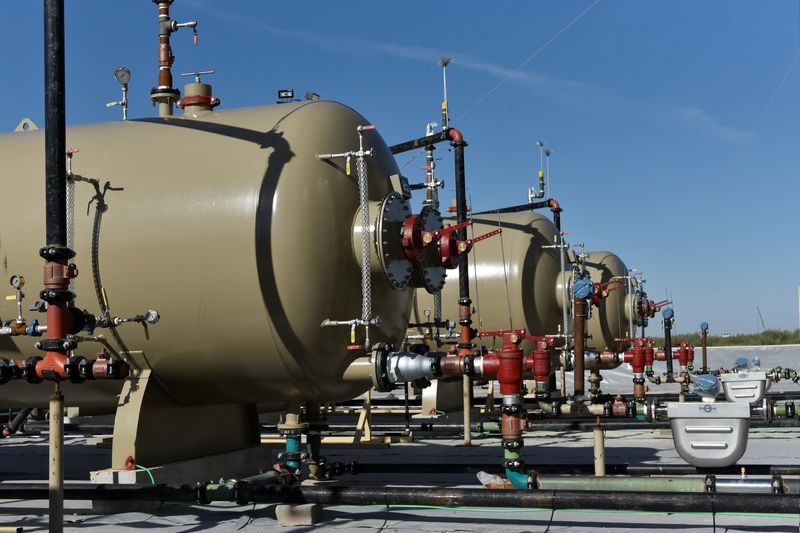[ad_1]
© Reuters
By Geoffrey Smith
Investing.com — Crude oil prices fell to their lowest since September on Friday, as tough talk from two of the world’s big central banks reinforced fears about the outlook for the global economy and consequently for oil demand.
Hawkish comments from U.S. Federal Reserve officials on Thursday were followed by the first acknowledgment from European Central Bank President Christine Lagarde that the Eurozone’s central bank will have to lift interest rates above their neutral level to actively slow the economy in order to tame inflation.
Such talk puts two of the world’s three biggest demand centers for oil on course for a deeper recession than priced in by markets.
By 10:00 ET (15:00 GMT), futures prices were down 4.1% at $78.31 a barrel, while was down 3.9% at $86.23 a barrel.
The spot physical market was also trading weaker, with many observing that prices for cargoes delivered in December were now at a discount to January, a reversal of the normal curve structure that typically indicates very weak near-term demand. The physical market was burdened further by the reopening of the key Nigerian Forcados export terminal after a week of disruptions.
The effect of the hawkish central bank talk had been amplified by signs of a slight rapprochement between the U.S. and Saudi Arabia, who have been at loggerheads all year over the right level of crude supply for a world economy experiencing an uneven post-pandemic recovery.
The Biden administration told a U.S. court on Thursday that Saudi Arabia’s Crown Prince Mohammed bin Salman’s status as a serving head of government would give him immunity from a civil lawsuit brought by the fiancée of Jamal Khashoggi, a dissident journalist who was murdered in 2018. A UN investigation into the murder had concluded by recommending that the Prince be included among the Saudi officials sanctioned in relation with the murder.
Saudi Arabia had led OPEC in snubbing U.S. demands for higher oil output in October, putting an extra chill on relations. The court news has fostered hopes of a more cooperative attitude from the Gulf going forward.
Across the Persian Gulf, meanwhile, youthful protesters escalated their campaign of civil disobedience in Iran, further loosening the 43-year hold of Islamic Revolutionaries on power there. Protesters succeeded in burning down the house of the late Ayatollah Khomeini, the father of the Islamic Revolution, in a striking challenge to the government’s authority.
Elsewhere, markets struggled to make sense of the G7’s plan to put a price cap on Russian oil exports. The EU is set to ban the import of Russian oil from December 5th, but will allow EU-flagged ships to transport it to third countries, provided that the agreed price is below a certain threshold. The scheme has been widely criticized as unworkable and invitations to black market mechanisms to circumvent it.
[ad_2]
Image and article originally from www.investing.com. Read the original article here.

